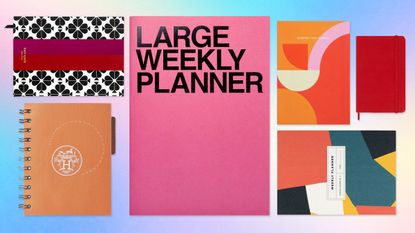

There's no better feeling than crossing off items on a to-do list—and with pretty much everything virtual these days, your eyes will thank you for incorporating some good old-fashioned pen and paper into your routine. But with an overwhelming number of planners and agendas available to shop, it can be difficult to choose just one. Plus, considering you'll be stuck with yours until the end of the year (or school year), purchasing the right 2024 planner can feel like a lot of pressure—almost as much pressure as learning how to use that planner to find success. That's why we've consulted Marie Claire editors and other professionals who use planners about the ones they swear by, plus spoken to Dr. Scott Lyons, a psychologist, and Kathleen Cameron, a manifestation coach, about how scheduling your day the old-fashioned way can make a tremendous difference.
Dr. Lyons points out that the satisfied feeling you get from writing down tasks actually has a psychological basis. "There is some interesting research about mobilizing," he explains, "where even just writing things down can help reduce stress, because we’re motoring some of that energy and anxiety into action." Plus, he says, "Some things you just can't type out," such as emphasizing important notes by underlining or highlighting.
Cameron adds that writing tasks down can keep you focused on everything you need to accomplish in a day, which is bound to keep you organized and push you toward your goals. "It's getting stuff done," she says. "It's waking up every day and saying, 'What are the most important things that I need to get done, and how quickly am I going to get those things done?'"
Whether you're looking to get more organized, trying to optimize your routine, or simply desperate not to forget any of the thousand important tasks you need to get to, there's a 2024 planner or agenda here that's right for you. (And if you're like me and like having a planner-journal duo, grab your next favorite cute notebook while you're on that stationary kick.)
- Best Overall Planner: Leuchtturm1917 Weekly Planner & Notebook
- Best Dated Planner: Papier My Daily Planner
- Best Undated Planner: Kate Spade New York Daily To-Do Planner
- Best Versatile Planner: Leuchtturm1917 Weekly Planner & Notebook
- Best Simple Planner: Papercode Daily Planner
Best Dated Planners and Agendas
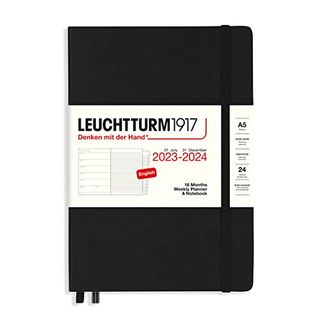
Both Marie Claire's Social Media Editor, Lucia Tonelli, and our Art Director, Brittany Holloway-Brown, love this planner by Leauchtturm1917. Tonelli explains, "There's a reason why Leuchtturm has remained a staple for writers, artists, amateur doodlers, etc. for over a century, and the German-made notebooks live up to the hype. The thick paper prevents ink from bleeding onto other pages (or, in my case, prevents writing indentations from being heavy-handed), and the calendar formatting is ideal for daily, weekly, and monthly planning without being overly complicated. If you're someone who uses a planner regularly, this sturdy, stylish, simple notebook is a must."
Pros: editor-approved; small; space for planning and creativity; thick, durable paper
Cons: small daily schedule blocks; some users say the ink is faint
Customer Review: "The Leuchtturm weekly planner has all the features I want in a planner and only one (admittedly idiosyncratic) flaw – the weekend days having to share space – so it’s a nearly ideal planner for me. After all these years of rolling my own, it’s a relief to find something readymade that’s close to perfect." -The Well-Appointed Desk
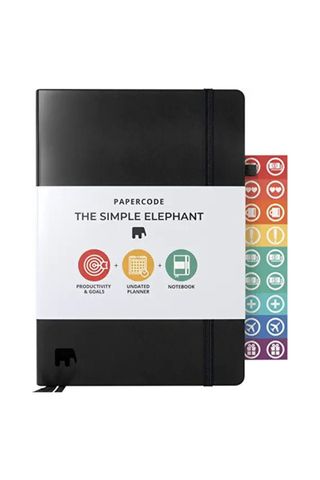
"I've been a planner girl since middle school and still am even well into my post-grad life. Having a to-do list written down just makes a ton more sense to me rather than using an app. This planner from Amazon fits all my needs and is super cheap. There's plenty of space to write in everything I have going on from day to day and I love how it comes undated. Plus it doubles as a notebook with a ton of lined pages in the back!" -Brooke Knappenberger, Associate E-Commerce Editor
Pros: editor-approved; lots of space for notes; small; space for visualization and manifestation; comes in multiple colors
Cons: none found
Customer Review: "This planner is the absolute best you can buy. If you want something that will not only keep you organized, but also keep you focused on your goals and bettering yourself, then this is it." -Amazon
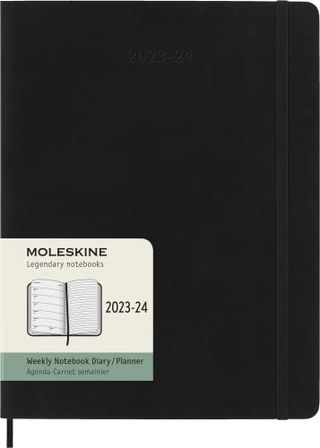
"For a classic option, go for Moleskine's 18-month weekly planner, which comes in a variety of colors. You can choose between the smaller 3.5 by 5.5 inch or the larger 5 by 8.25 inch one. This way, whether you have a roomy backpack or a modest-sized purse, you'll be able to stash this pick wherever you go. It includes monthly and weekly calendar views, and each week’s page lies adjacent to a page reserved for notes, to-do lists, or creative exploration. The book also includes stickers that are perfect for planning or calling attention to important dates." - G.U.
Pros: small and easy to carry around; elevated look and feel
Cons: thin paper, so ink may bleed or show through
Customer Review: "I love the size and feel of this daily journal. It starts on July 1, 2023 and ends on December 31, 2024. The front few pages have small monthly calendars and a few extras for travel, random thoughts, achievements, etc. but the bulk of the journal is one day per page. Overall it's very elegant and simple, no frills." -Amazon
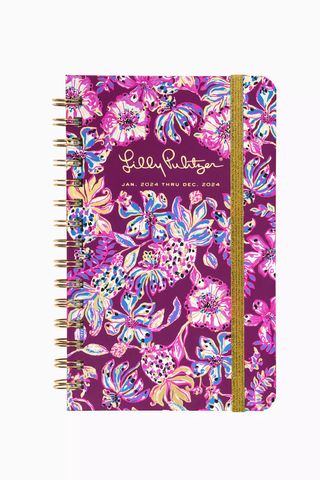
Back in high school, I lived and died by my Lilly Pulitzer planner, but even now as an adult, I still want to fill the pages of one. First of all, this planner is gorgeous from the floral cover to the fun borders, colorful tabs, and metallic gold elastic. Even the font is pretty! As a bonus, there's a sticker sheet to make important days like vacations and birthdays stand out, plus an interior pocket to keep notes handy. For a planner that's as cute as it is useful, it's hard to believe it's only $25.
Pros: fun cover; includes interior pocket; comes with sticker sheet; affordable
Cons: none found
Customer review: "I have been using this planner for the last 10 years of my life. I ask for it as a gift every single Christmas. It is the perfect size to keep at my desk and for travel. My entire life is planned out in this monthly planner book. 10/10 recommend" — Lilly Pulitzer
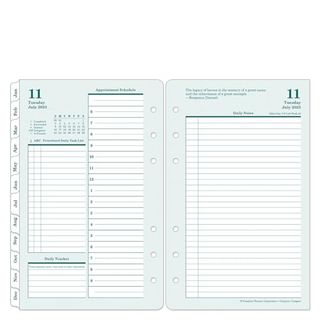
"I had a Franklin Planner back in school," says Dr. Lyons, "because I had such severe ADHD, and I relied on it because otherwise I didn’t know what my homework was. When you have a planner, it becomes a ritual, and it’s the ritual of writing things down and of checking things off. When we sink into a rhythm and we have a ritual, it’s a restoration of time, and that’s a method of time management." He also says he loves the planner because it has a lot of space for notes and lists.
Pros: plenty of space for notes; expert-approved
Cons: organized by school year, so may not be for those who prefer annual planners
Customer Review: "This planner is perfect for HR professionals with lots of interviews, to do lists and daily notes to look back on. I had this planner before and just reordered it. It's perfect for my organizational style. If you are detailed and like to brain dump, this is for you! The Best one back then and still today." -Amazon
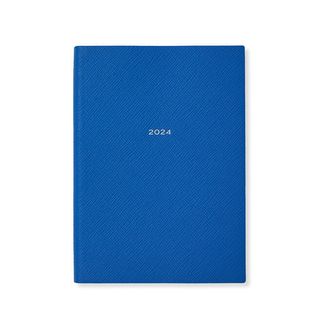
Jenny Hollander, Marie Claire's digital director, swears by this planner. "Look, I hear you. Spending upwards of $250 on a planner feels crazy, right?" she says. "Hear me out: The Smythson Soho is so much more than a planner. Like your favorite wallet or handbag, it’s designed to go everywhere with you and be part of everything you do, from your social planning to wedding planning (hello!) and all your work needs. Two years ago, a friend gifted me my first Soho agenda, and I fell in love with the silky pages, meticulous design, and luxurious feel; I’ve been hooked ever since." She adds: "Just be warned: You can’t go back to other planners. Nothing feels right after the Soho. (PS. If you’re going to splurge anyway, go ahead and get the gold monogramming. It’s worth it.)"
Pros: editor-approved; luxurious; small; includes a bookmark; can be personalized
Cons: expensive
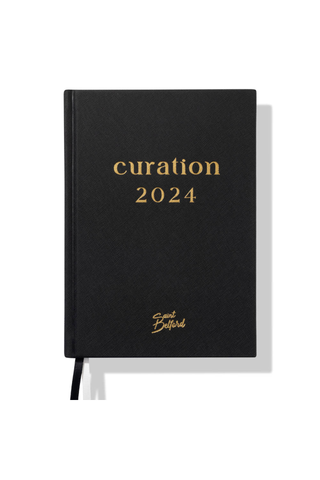
"This planner focuses on wellness, daily to dos, mindfulness, and goal-setting. My favorite aspect of its design, however, is its pages devoted to habit tracking: The entries allow users to dive deep into the habits they'd like to develop by unpacking why those habits are important to them and exactly how and when they'll work towards them. Another aspect I love (I’ve been using the planner all year) is the space for gratitude lists at the beginning of each week." - Gabrielle Ulubay, E-Commerce Writer
Pros: includes space for planning, to do lists, and gratitude; has two built-in bookmarks; easy to carry around; editor-approved
Cons: hardcover, so a little heavy
Customer Review: "I freaking love these diaries. Have used for last three years. You can find a use for all aspects, it has enough space to write lists, notes, etc. Daily habit tracker is brilliant, weekly planner where you can use it for what you like is perfect, just the right amount of space per day, goal setting and doodle space, looks beautiful." -Saint Belford
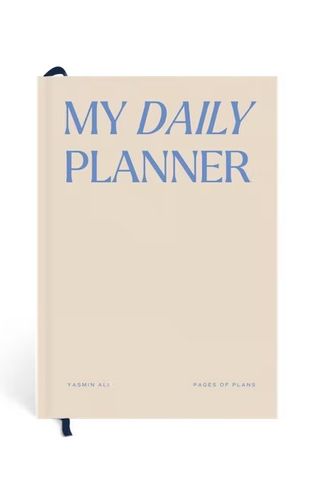
"My Papier planner is essential to help organize my time," says Senior Editor Tanya Benedicto Klich. "I add everything in it from meetings at work to yoga classes at the weekend and I love that it’s undated so you can start it at any point during the year. Being able to personalize my name on the cover makes it feel really special and there’s a huge choice of designs to reflect your personal style which I love." On incorporating the planner into her wellness routine, she adds, "Using my planner and being organized clears my mind and makes me feel less stressed. It’s really a wellness tool for me too, and with all its cover designs ranging from colourblock to cottagecore, the planners add a dash of color and style to the interior of my work bag. You can buy their pocket diaries and meal planners to match."
Pros: editor-approved; can be personalized; plenty of space for planning; sustainable packaging; undated
Cons: small daily blocks
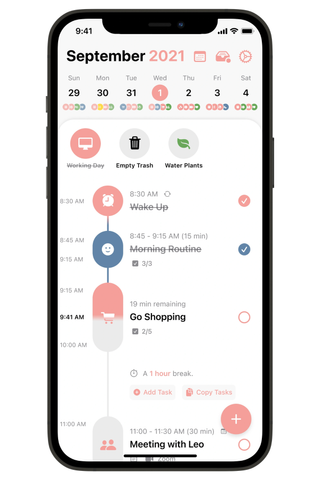
Fashion stylist Sarah Nearis often finds herself running from appointment to appointment and city to city, splitting her time primarily between Nashville and L.A. and styling the likes of Rita Ora, JoJo, Michelle Rodriguez, and more. To stay organized, she uses a planner app called Structured."I love it because I’m a very visual person and its layout inspires me to be more organized," she says. "I feel like, as artists, sometimes we can be scatterbrained and I get distracted easily, but this app is super user friendly, visual appealing, and motivates me to be more organized."
Pros: expert-approved; convenient; visual layout; basic version is free
Cons: premium version has a yearly fee
Customer Review: "I looked for so many different apps and out of all the ones I tried, this one is by far the best. It lets you chose your symbols for the activity (some of them are unavailable because of payed version) and set a specific time and date. Also I absolutely love how when you put a lot down on your schedule on the little free time (without an activity listed) it says “maybe take these __ minutes to rest/read a book” which I like because it has to do with my mental health and reminding me to take breaks. Overall this is just a really good app to use to schedule your day and organize yourself." -Apple
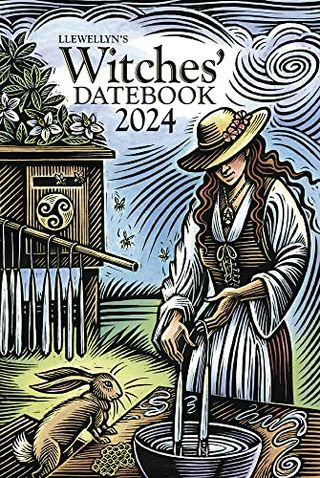
"For those who love spirituality and New Age wisdom, it's worth considering this fun datebook. Not only does it function as a daily planner with plenty of space for to do lists and daily planning, but it also contains recipes, wellness ideas, articles, yoga poses, and other feel-good tips to get you through your week. Plus, it’s spiral bound, so you can pull out any wellness and lifestyle tips you especially adore for safe keeping." - G.U.
Pros: focus on wellness; small and easy to carry around; includes lifestyle tips
Cons: daily blocks are small
Customer Review: "Love these datebooks!! I have bought one every year for the past 5 years if not longer. Large enough space to write about your day and reminders for the day. Monthly overview is great. Dates of the full moon in back of datebook, which is a huge plus for me. Lots of information and Sabbat days. Space for notes in the back. And you can also color in the black and white pictures." -Amazon
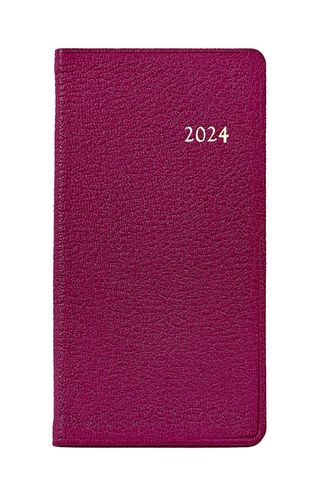
Nice things can come in small packages, as made clear by this pocket agenda. At just 3 inches wide and 6 inches tall, this planner is on the small side (hence the name pocket journal) but that's what makes it special! It has just enough space to write do your most important to-dos for each day, plus it comes with pages to see your month and year at a glance. Additionally, there's 12 pages of full-color maps, listings of national holidays, birthdays, addresses, all US area codes and international dial codes, and much more. With its compact size, this is the perfect planner to take with you on travels, too.
Pros: compact size; travel-friendly; comes in five colors
Cons: compact size does not give a lot of room for writing
Customer review: "I get one of these every year because they are so well made and the size and layout work for my practice. I decided to mix it up this year and step away from gold and rose gold and I love it! The color brings a pop of joy into me when I see it." — Graphic Image
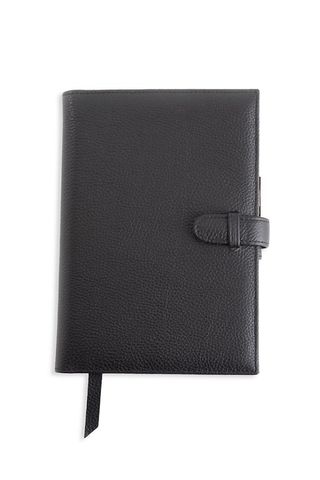
For many of us, a planner is something we carry with us every single day, so why not invest in one that's truly luxurious? Made of genuine leather and filled with stunning silver gilded pages, this planner will make you feel like a boss every time you write in it, not to mention it will hold up to everyday wear and tear. It features plenty of room for your daily to-do lists, plus a leather snap closing, and matching bookmark, and includes a pen in its own case so you'll never lose it.
Pros: comes in nine colors; made of leather; includes a matching leather bookmark and pen
Cons: expensive
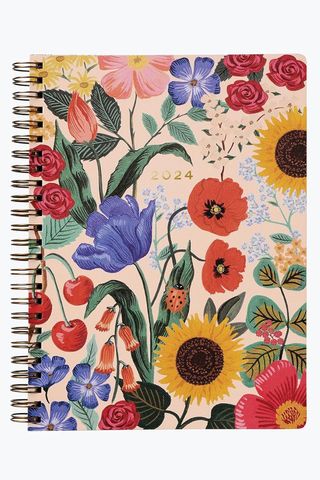
RIFLE PAPER CO. makes the prettiest and sturdiest stationary out there at an affordable price, and their planners are no different. Known for their fun floral prints, this is a great gift option for anyone who needs a little more color in their everyday life. This pick has a page for just about everything you could want in a planner: a to-do list, weekly and monthly spreads, a year in review page, and a note page, and even inspirational quotes to help you tackle the week. One reviewer said it's a great size, too, writing, "The size is perfect for carrying in my small tote bag."
Pros: great size; fun cover; affordable; big space for to-do lists
Cons: shipping time is long
Customer review: "Love the set up for days activities and a separate glance at to-dos for the week. Beautiful cover and thick paper!" — Amazon
Best Undated Planners and Agendas
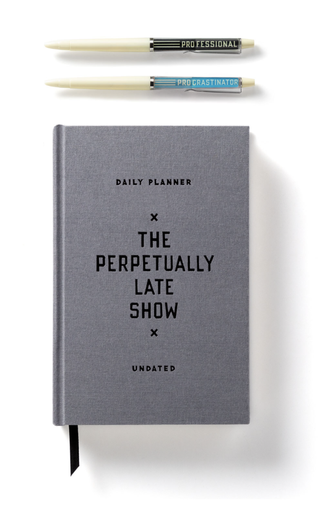
"For those who are chronically tardy, this planner is the perfect tongue-in-cheek accessory. Not only is it vintage-inspired and therefore delightful to look at, but it also comes with two cheeky floating pens: The first says "procrastinator" and changes to "mastercrastinator" while in use, while the other says "professional" and changes to "adequatefessional" while in use. And, if you're into desk pad-style planners, check out the brand's weekly planner pad, which lets you separate and plan tasks by morning, afternoon, and evening. I personally like how interactive this option is, with its fun trivia and quips that keep me amused and engaged. Plus, since it's not dated, there's no pressure to use it every day and I never feel like I'm being wasteful for not using it on the weekends." - G.U.
Pros: fun cover, trivia, and spaces for doodling; comes with pens
Cons: hard cover makes it bulky
Customer Review: "Each page is full of random holidays, celebrity birthdays, doodle activities and writing prompts. Overall a fun planner." -Amazon
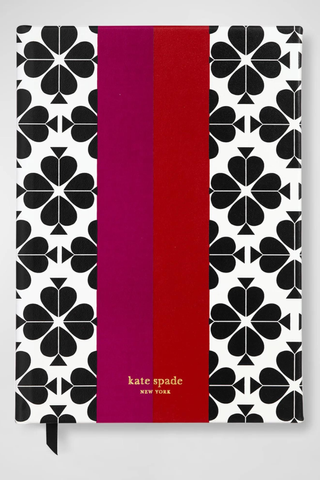
"I’m positively obsessed with this planner from Kate Spade. Not only is it chic (in line with my expectations from the brand, of course), but it’s also incredibly functional. It has full page spreads for each day, leaving space for block scheduling, to do lists, prioritizing, and even meal planning. Weighing in at 168 pages, it’s also bulky enough to last you for ages but lightweight enough to stow away in your bag when you’re on the go." - G.U.
Pros: lots of space for each day; lightweight; easy to carry around; fashionable
Cons: not a lot of note taking space
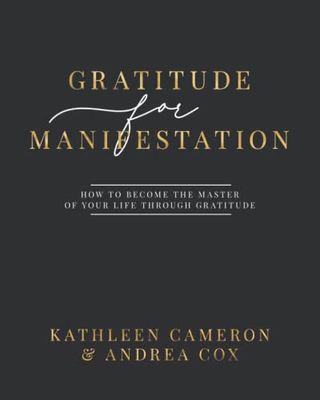
This option was created by Cameron herself, and has a focus on gratitude journaling. She explains, "My gratitude journal has spaces to show gratitude for five things that I have already and for five things that i’m manifesting. It has a goal statement, it has a state of being statement, and it has a statement on sending love (so it's 'Who am I sending love to today?')." She says part of her motivation was to open people up to what she calls the two types of gratitude: "There's gratitude for what you have in your life already, and there’s gratitude for manifestation. There, you’re grateful not for the things you have but for the things that are on their way."
Pros: developed by an expert; gratitude focus; plenty of space for journaling and to do lists
Cons: no date blocks
Customer Review: "It is laid out and such an organized and informative way. It has a section for all things in my daily routine such as present gratitude, sending love, setting intentions, writing out your goal, affirmations, and future gratitude. It is truly a one stop shop and I will definitely be buying one every six months!" -Amazon
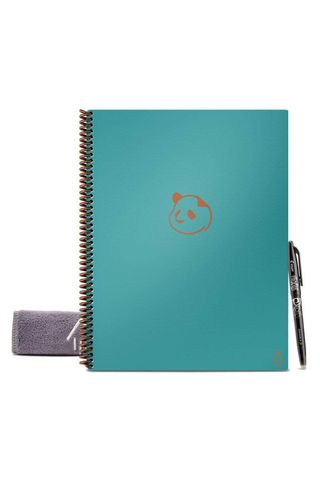
"Buy this planner once and you'll never have to buy a planner again. It comes with a special pen and pages that can be easily erased with a microfiber cloth for 'endless re-use.' And, of course, the planner is undated. It’s a sustainable response to the waste that planners generate from being disposed of year after year, and it has a design that Cameron would approve of, with space for reasonable to do lists, a morning routine, and gratitude lists. It also comes in multiple sizes, so you can pick one that suits you (and your work bag) best." - G.U.
Pros: space for routine setting, goal setting, and gratitude; editor-approved; comes in multiple sizes
Cons: none found
Customer Review: "I have the large panda planner but moved to the small one for portability. Love all their products and this planner keeps me organized and moving forward!!"
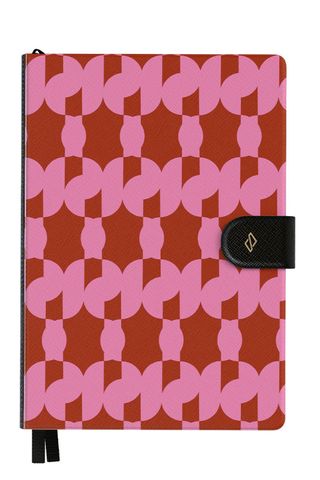
When I came across BURGA's planners I was shocked at just how many options there are for covers. There's so many (over 200 designs, to be exact), that I had to go through the six pages of options thrice just to nail down my favorites. Whether you're a minimalist or prefer bolder and brighter colors, BURGA has a planner for you. Each one is bound in luxurious, durable vegan leather that will keep up with all of your daily wear and tear. Then you've got 144 silky pages, which are thick enough to protect against ink bleeding, to plan your week and your overall year. As if this wasn't the perfect planner already, it also comes with an interior pocket for notes, two fabric bookmarks, and a smart metal time tag.
Pros: comes in over 200 designs; affordable; durable; made of vegan leather; includes interior pocket for notes, two fabric bookmarks, and a smart metal time tag; has a magnetic clasp closure
Cons: none found
Customer review: "I've been using BURGA’s Infinity Planner for a while now, and I just love the flexibility it brings to my life! The undated pages are definitely the best part. There's no waste—if I skip a week, I just pick up right where I left off, no blank pages left behind. It's perfect for my sometimes unpredictable schedule. I organize things exactly how I want, at my own pace. Plus, the metal time tag? Absolute genius! It's like this planner gets me and my needs." — BURGA
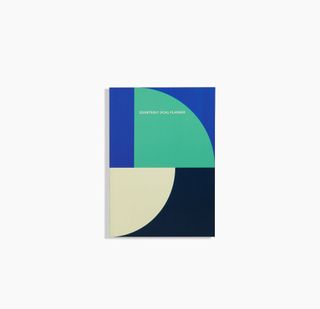
"If you're especially goal driven and want to give yourself deadlines based on the current professional quarter, this planner is the one for you. It also comes with prompts designed to bring you inspiration and motivate you along your journey. When I worked in sales, this planner was incredibly handy and allowed me to focus on my quarterly goals and overall growth, plus it kept me motivated in what was a notoriously challenging field. Plus, it comes in several different colorways so you can change up the vibe quarter after quarter." -G.U.
Pros: focused on goal setting; geared toward motivation and persistence; editor-approved
Cons: doesn't cover the full year (only three months at a time)
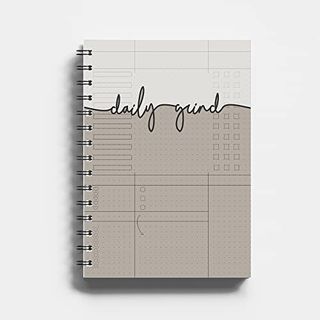
"I'm big on goal setting but not so big on structure, so this planner is perfect for me. Its bulleted format allows me to doodle, write, and plan without feeling confined, and because it’s completely undated, I can pick it up or neglect it as often as I please, sans wasted space. Plus, it has dedicated pages for to do lists, which is my primary means of keeping myself organized. And because it’s spiral bound, it’s a breeze to use and fold over." -G.U.
Pros: editor-approved; plenty of space; completely undated
Cons: large, so can be difficult to carry around
Customer Review: "The Daily Grind Planner has been an absolute GAME CHANGER for me! I'm more productive, focused, and genuinely excited to open my planner every morning. It has a strong focus on goal setting which is honestly something ALL other big planner brands out there were lacking for me. I can use my phone to remember appointments and events, but I really needed something to help me figure out HOW to hit my goals, THIS IS IT!! Plus, for all the creative souls out there like me, the bullet journal style page layout is nice and minimal so you can use markers/stickers to make it even more aesthetically pleasing." -Amazon
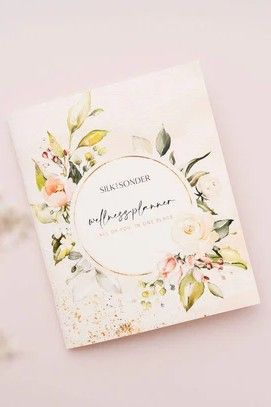
"I'm obsessed with Silk and Sonder's unique take on the planner. This book is meant for focusing on self-development, wellness, and personal growth This means that it includes features like inspirational quotes, undated calendar blocks, mood trackers, creativity exercises, gratitude lists, and more. With this planner, you can feel better about yourself and your trajectory every day. Plus, it’s thin and lightweight, which makes it a breeze to carry it around, whether you’re working at a traditional office or posted up at a cozy café." -G.U.
Pros: wellness-focused; space for gratitude; lightweight
Cons: thin cover that can get damaged easily
Customer Review: "I love my new journal! I make time to use it every day and it is helping me to build routines and rituals. The layout is adaptable in so many different ways and lets you track so many different things. This was one of the best choices I've made in my mental health journey." -Silk & Sonder
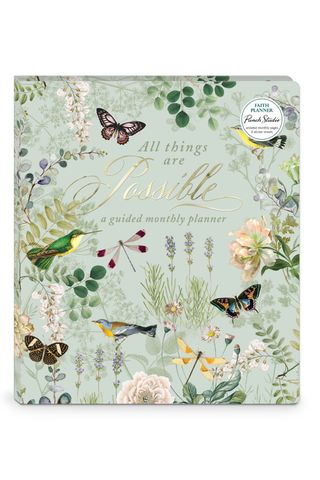
"I use this planner, and I can't live without it. Its natural, butterfly themed theme never fails to uplift me, and it makes me feel chic and organized on even my most chaotic days. One of my favorite features is the sheer amount of blank note pages in the back of the book, which is extremely handy when I've forgotten my separate notebook (or when I can't fit it in my bag). It’s also incredibly affordable, and because it’s undated, it can last you for ages." -G.U.
Pros: appealing design; lightweight. editor-approved
Cons: none found
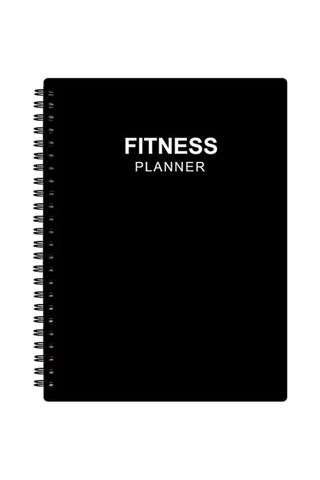
"If working out is an important part of your day, take a look at this best-selling fitness journal, which includes monthly calendars, daily logs, and places for goal-setting. Not only is it a great way to stay on top of your growth and development, but it’s also fabulous for looking back and patting yourself on the back for how far you’ve come. Reviewers adore the book, with multiple happy customers saying that it's easy to use, straightforward, and that they can't go to the gym without it." - G.U.
Pros: affordable; fitness-focused; focus on goal setting; great for quantifying growth; easy to use
Cons: none found
Customer Review: "I love this book. I am a bit of a journal addict and have bought many journals that I never use. There are two things that work for me with this journal: it's small and lightweight, and the formatting is simple." -Amazon
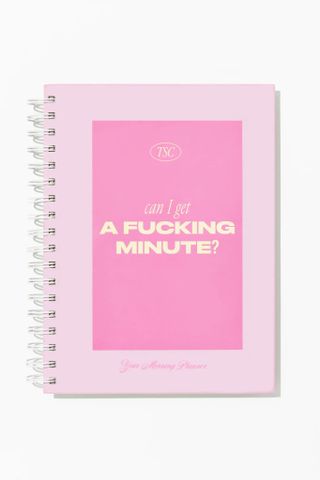
"This cheeky planner focuses specifically on crafting a productive, feel-good routine that works well for you. The entries for each day include spaces for daily meditations, the books you're reading, workouts, and more. Plus, it comes with a sheet of cute stickers you can use to customize your book. My favorite feature, though, is the space it has for your skincare routine. Since I love trying out new products for my skin and hair, it’s great to have a spot where I can keep track of all my serums and creams so that I know what’s working and what isn’t." -G.U.
Pros: lots of space for each day; fun prompts; great for building routines
Cons: cover, while fun, can be challenging to have out in public at the office
Customer Review: "This planner helps me so much and it's fun to add my gratefuls / intentions to keep me mindful throughout the day." -The Skinny Confidential
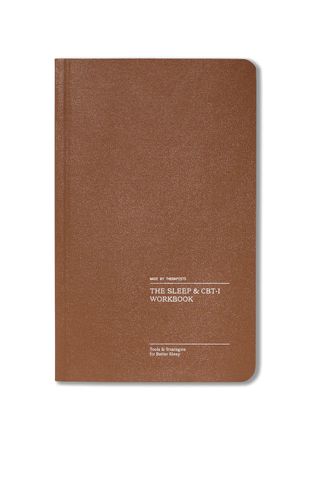
"We plan our waking hours, so why not plan our sleep, too? This highly original planner maps out a six week program developed by therapists to help you achieve better, more restful, and more regular sleep. I've been using it over the past few weeks, and it's made me more thoughtful and intentional about my nightly routine so that I can be better rested (and more productive) during the day. It also helped me understand what practices weren’t working for me before bed." - G.U.
Pros: educational; editor-approved; developed by therapists; wellness-focused; lightweight
Cons: not for to dos, work, and other traditional daily planning
Customer Review: "This actually went above and beyond my expectations. It’s a great tool that I highly recommend!" -Therapy Notebooks
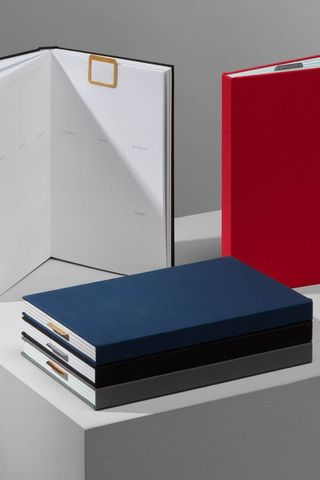
"This planner is perfect for people who, like me, sometimes go a week or so at a time without touching their planner (think: vacations, time off, or those weeks when you don’t have time to sit down and write). The flexible, undated layout of this option, coupled with a handy removable calendar clip, allows users to use the planner whenever they'd like, take a break when appropriate, and then pick back up where they left off. You can kiss wasted pages goodbye!" - G.U.
Pros: includes a secure, functional bookmark; completely undated; editor-approved
Cons: daily blocks are small
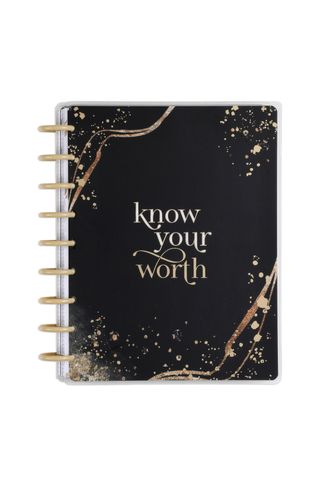
We all use planners for different reasons—while some of us use them religiously to manage our to-do lists, others may use them to track personal finances. If you're in the later camp or want to be, this is the planner for you. This 12-month, undated planner is the ideal pick for those looking to nail down their budget or the advanced planner wanting to save more throughout the year. For each month, you get a page to set your goals and budget, and each week has a page to track your expenses so you can really see how much those Starbucks runs add up. Throughout the book, there's even quotes, tips, and challenges to keep you inspired and motivated.
Pros: financial-focused; focus on goal setting; easy to use; completely undated
Cons: not for to dos, work, and other traditional daily planning
Customer review: "This planner has everything I need for budgeting and tracking spending. I have used this for 2023 and ordered a new one for 2024. Love the setup." — Happy Planner
The Benefits of Having a Planner
Dr. Lyons points out that the benefits of having a planner or agenda aren't just aesthetic. "Often, structuring our time takes us out of a reactive mode and out of a place of urgency, and as a result we're more proactive with our time as opposed to reactive. And that, in and of itself, lowers our stress levels and makes us more able to manage our attention efficiently. Trying to complete a task while holding our entire agenda for the day in our heads is an inefficient use of our time and energy, so that ends up leaking out and we aren’t able to be as efficient as we could be in other important facets of our lives, like our relationships and our self care. There really are a lot of ramifications for not being efficient with our time management."
What to Look For in a Planner
Before buying a planner, it's important to consider what you're looking for, what your goals are, and how you like to stay organized.
Personal Goals
For instance, I love making to-do lists, so I gravitate toward planners that include goal-setting sections, generously sized daily blocks, and plenty of blank lined pages. Cameron stands by this logic, recommending that, "When you wake up in the morning and when you go to bed the night before, write down the six most important things that you’re going to do today—just six." This limit keeps goals manageable, allowing you both be ambitious and prevent feeling overwhelmed.
She adds that the perfect planner should also get you into the right mindset to start a positive, productive day. The right planner, she says, "might start with gratitude, or it might start with a statement answering 'What state of being am I going to be in today?'" This, she says, puts you in the right state of mind to have a productive day. When Cameron herself began trying this out, she says she needed to work less. "I was far more productive," she attests, "and the work I did had a far greater impact."
Length of Use
When buying an agenda, another important question to ask yourself is when and for how long you intend on using it. Some agendas on this list are designed for limited spaces of time (e.g., six weeks or three months at a time); others are undated so that users can focus on accomplishing specific short-term goals. Other goal-oriented planners include inspirational quotes, tips on staying focused, and other tools meant to guide you along your journey. Meanwhile, more traditional, dated planners and agendas simply lay out the entire calendar year or school year.
Size and Materials
You should also consider size and durability when buying a planner. If you carry around a big bag and/or if you need as much space as possible in your planner (for note-taking, mind-mapping, etc.), then a large planner may be best for you. On the other hand, if you need your planner to live and plan on taking it just about everywhere you go, go for a small planner. And if, like me, you tend to be rough on your items, look for a sturdy, hardcover planner so that you don't accidentally rip it to shreds within the first few weeks of use.
Getting the Most Out of Your Planner
Goal Setting
Planners aren't just for checking your availability and jotting down reminders—they are, first and foremost, for getting down to business so you can achieve your short- and long-term goals.
"A lot of people put vision boards up on their walls but then continue to be the same person they’ve always been," says Cameron. "But the realization of what’s on the vision board is through answering the question of 'Who do I need to be in order to have that life?' And that's about personal growth and development." While she cites long-term goal setting and visualization as key to achieving long-term success, but notes that it's also important to prioritize what she calls "the doing."
Again, she recommends making a list of six tasks to accomplish in a given day. "Then, order them by importance. So maybe at the top of the list, you have two important things, then two things that could maybe wait, and then two things you could potentially do. You start with the most important item on the list, and you’re not allowed to go to number two until number one is done. Because what we do is we avoid the most important things, so this technique forces you to do the most important thing, and you cannot move forward with anything else until the most important thing is done."
Dr. Lyons echoes this sentiment, saying, "Simply having a planner be an action plan that lays out your goals is best, and thinking about it as an action plan for achieving your goals actually reduces stress because it lays our achievable action steps. It plots a way of achieving your goal in achievable, bite-sized steps."
Balance
He also adds that it's important to lay out in your planner "where there’s time for recuperation, because in the same way that we can’t effectively multi-task, we can’t sustain a work day for eight or 16 hours nonstop. So being able to plan where we recuperate means that we’ll be able to be more effective when we do work. And there’s something about being able to identify your goals and being able to parse them out in a scheduled sense of time that is empowering. And in our urgency culture, it’s one of the most effective ways of regaining a sense of power and agency."
Staying On-Task
Cameron recommends using block scheduling as a way of staying focused—and stresses that focus is a key element to getting any job done.
"For certain parts of the day, decide what you’re going to focus on, and focus solely on that one thing," she says. "I put things into my calendar, and when I do that thing, I do that only. As much as you can, do one thing at one time and schedule it in your calendar. I even have my morning walks and my meditation in my calendar. If you think about it, when you’re doing six or seven things at one time, your energy is fragmented among those six or seven things, so it’s going to take you six times longer to do each of those tasks. But if you focus on one task at a time before moving to the next, you’ve got fully focused energy that’s not fragmented. And that’s how you become more efficient and save more time and energy."
And there's evidence to back Cameron's claim up. Dr. Lyons says that multi-tasking is known as the "dual task challenge," and that's far from recommended. "We can switch between one task and another, and some of us can do it more quickly, but we can’t actually attempt multiple things simultaneously," he explains. "Some of us are able to change tasks quickly, and we can become quicker at that, but from a neuroscience perspective, we can’t hold more than one thing at one time. And to attempt to do so is taxing. And it’s not energy efficient; it wears and tears. We only have but so much energy in the day, and often, attempting to multi task is robbing the energy we have in a day."
Block scheduling also "helps us evaluate how we spend our time," according to Dr. Lyons. He says, "You may look back on your planner and wonder what you were doing with a certain pocket of time, and then realize that you were doom-scrolling. Or you may realize that you weren’t planning things in the morning, like exercise, that help you build up more energy throughout the day. Planners are a tool to help evaluate where you’re putting your energy, which is powerful." Laying our your schedule hour by hour also helps you see if you're overscheduling yourself, which Dr. Lyons says is a way we often "contribute to our own stress."
Meet the Experts
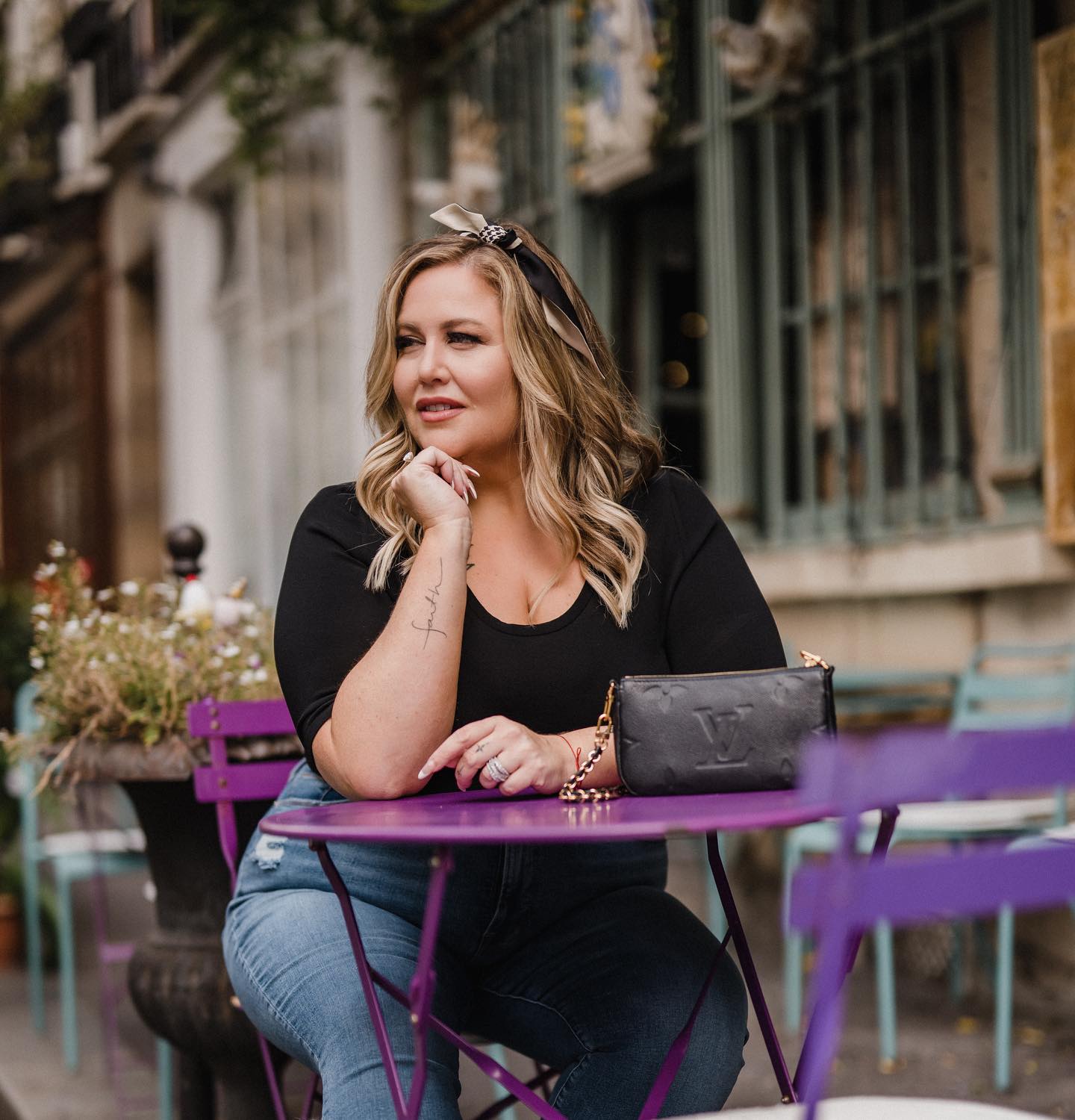
Kathleen Cameron is a Manifestation Coach, author, and entrepreneur. She founded Diamond Academy Coaching Inc. and has gained a loyal following that's culminated in a $10 million manifestation business. Author of Becoming The One and co-author of a guided manifestation journal, she's devoted to helping people realize their full potential.
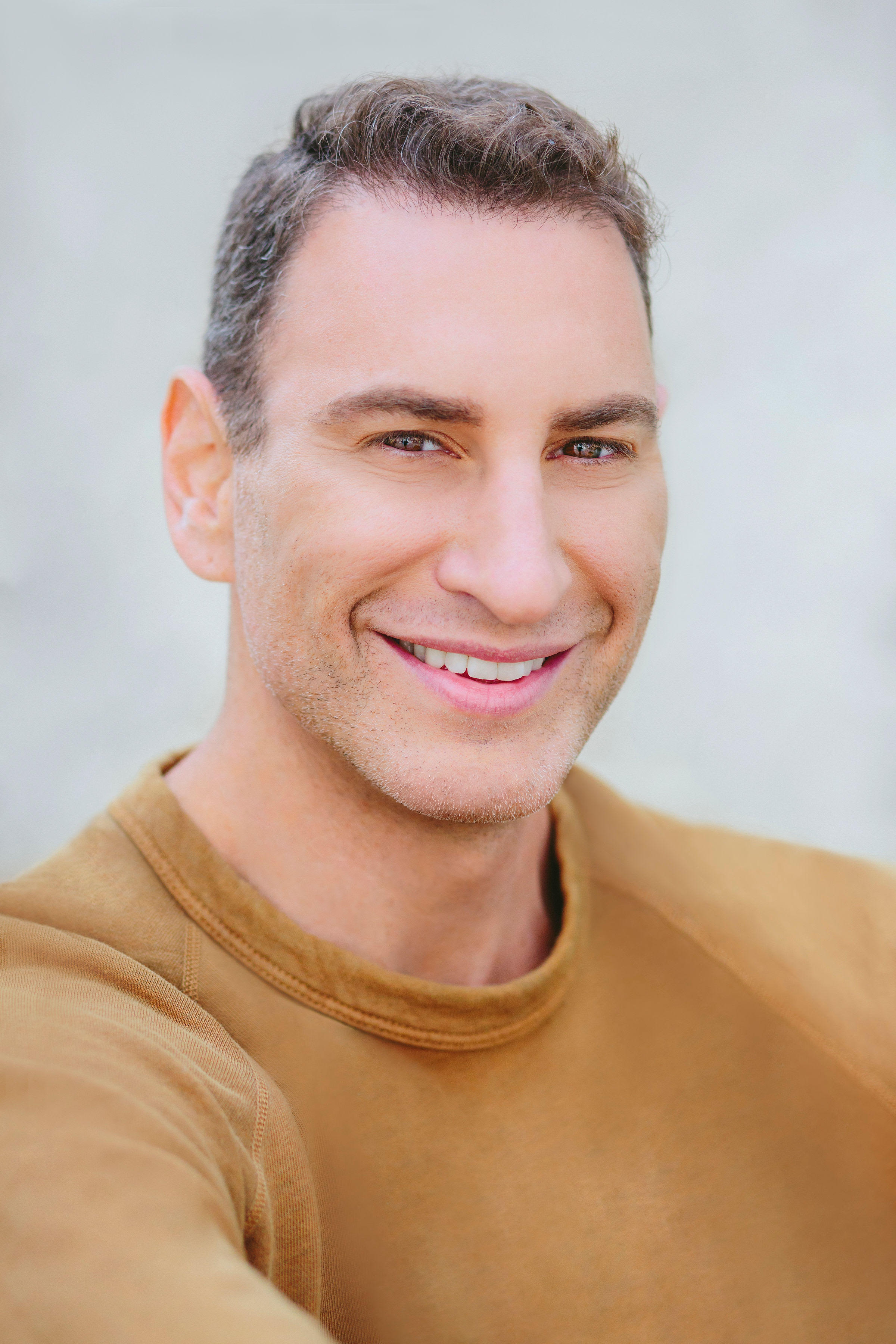
Dr. Scott Lyons is a licensed psychologist, educator and author of the best selling book Addicted to Drama: Healing Dependency on Crisis and Chaos in Yourself and Others Scott is also the host of The Gently Used Human Podcast, an exploration of what it is to be human, to have lived life, and come out gently used. As a renowned body-based trauma expert and Mind-Body Medicine specialist, Scott also helps people to break free from cycles of pain, limited beliefs, and trauma. Scott is an innovator in transformative wellness and trauma therapy, teaching over half a million people internationally over the past twenty years how to relieve stress and restore vitality.
Stay In The Know
Marie Claire email subscribers get intel on fashion and beauty trends, hot-off-the-press celebrity news, and more. Sign up here.

Gabrielle Ulubay is a Beauty Writer at Marie Claire. She has also written about sexual wellness, fashion, culture, and politics both at Marie Claire and for publications like The New York Times, Bustle, and HuffPost Personal. She has worked extensively in the e-commerce and sales spaces since 2020, including two years at Drizly, where she developed an expertise in finding the best, highest quality goods and experiences money can buy. As a film school graduate, she loves all things media and can be found making art when she's not busy writing.
-
 39 Items That Increased My Screen Time This Week
39 Items That Increased My Screen Time This WeekSpotted in my daydreams.
By Aniyah Morinia Published
-
 Katie Holmes Cracks the Commuter Outfit Code
Katie Holmes Cracks the Commuter Outfit CodeHer relatable wardrobe staples strike again.
By Lauren Tappan Published
-
 Gwyneth Paltrow Loves This Reality Show and She's Never Been More Relatable
Gwyneth Paltrow Loves This Reality Show and She's Never Been More RelatableShe's a fan of having a "slovenly day," too.
By Meghan De Maria Published
-
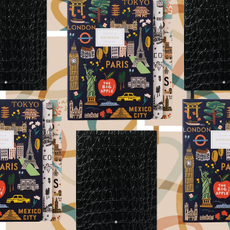 21 Cute Notebooks for To-Do Lists and Journaling
21 Cute Notebooks for To-Do Lists and JournalingDitch the Notes app for now.
By Rachel Epstein Published
-
 16 Sustainable Product Swaps to Make Your Home More Green (And More Chic)
16 Sustainable Product Swaps to Make Your Home More Green (And More Chic)You aren't trashy, so don't let your household be.
By Julia Gall Published
-
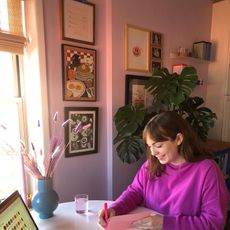 How This Designer Is Staying Inspired From Home
How This Designer Is Staying Inspired From HomeFor textile designer Anna Brettschneider, creativity is rooted in tech.
By Maria Del Russo Published
-
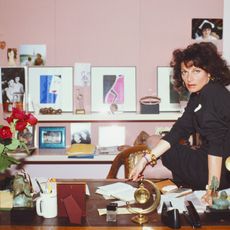 14 Desk Organization Ideas You Can Actually Use
14 Desk Organization Ideas You Can Actually UseYou'll have a Pinterest-worthy workspace in no time.
By Bianca Rodriguez Published
-
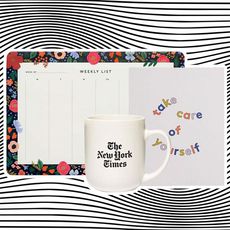 Cute Desk Accessories to Make WFH More Enjoyable
Cute Desk Accessories to Make WFH More EnjoyableStep away from the couch...
By Rachel Epstein Published
-
 How to Go Green Without Going Overboard
How to Go Green Without Going OverboardIs there a catch-22 of sustainable shopping? Our resident psychiatrist weighs in.
By Samantha Boardman Last updated
-
The Life-Changing Magic of Marie Kondo
The home-organizing expert has a new Netflix show premiering January 1.
By Pamela Druckerman Published
-
 10 Questions to Ask Yourself to Determine If It's Worth Leaving the House Today
10 Questions to Ask Yourself to Determine If It's Worth Leaving the House TodayAll signs point to no.
By Chelsea Peng Published